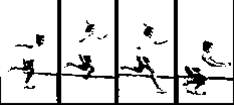Is there a way to Predict if you will need ACL Surgery?
ACL surgery can be tough, often involving time on crutches and extensive rehab. Recent research has begun to question if some patients are better off without knee ACL surgery. In addition, we’ve used various stem cell treatments to help patients avoid ACL surgery. So if you’ve recently injured your ACL, is there a way to predict if you would do well without surgery? Can a simple test predict if you’ll be able to avoid ACL surgery? A recent study investigated whether a single legged hop test for distance could tell who would do well 1 year after their ACL injury. The study tested 91 patients who were about 2 months out from an ACL injury, but who didn’t opt for ACL reconstruction surgery. 89% of these same patients were then retested about a year later. It turns out that the single hop test for distance predicted those patients who were more functional at a year out. In addition, more women had difficulty at that point then did men. How do you perform this test? Stand on one leg, with your foot on a starting line (some fixed point you can measure from), and perform a maximal hop forward, landing on the same leg (along a straight line). Arms may swing freely to assist, be held on hips, or behind the back. The distance is measured from the starting line to where the back of the heel lands. Landing position must be held for 2 seconds with no loss of balance or extra steps. The hop is scored by comparing the bad leg to the good leg. For example, if you could hop 3 feet on the bad leg and 6 feet on the good leg, then you would divide 3 by 6 to get 0.50 and multiply by 100 to get a percentage of the good leg hop. Here that would be 50%. In this study, the cut off for someone doing well a year out from their injury was an 88% hop on the bad leg (as compared to the good leg hop) when measured at about 2 months after injury. The upshot? If you’ve recently injured your ACL, you may want to use this simple test to see if you can avoid ACL surgery and try an ACL surgery alternative.
Learn More About The Regenexx® Approach
Request a digital booklet and more information to learn about alternatives to orthopedic surgery and the Regenexx provider patient experience.
We do not sell, or share your information to third party vendors. By submitting the form you agree that you've read and consent to our Privacy Policy.

Chris Centeno, MD is a specialist in regenerative medicine and the new field of Interventional Orthopedics. Centeno pioneered orthopedic stem cell procedures in 2005 and is responsible for a large amount of the published research on stem cell use for orthopedic applications. View Profile
If you have questions or comments about this blog post, please email us at [email protected]
NOTE: This blog post provides general information to help the reader better understand regenerative medicine, musculoskeletal health, and related subjects. All content provided in this blog, website, or any linked materials, including text, graphics, images, patient profiles, outcomes, and information, are not intended and should not be considered or used as a substitute for medical advice, diagnosis, or treatment. Please always consult with a professional and certified healthcare provider to discuss if a treatment is right for you.

